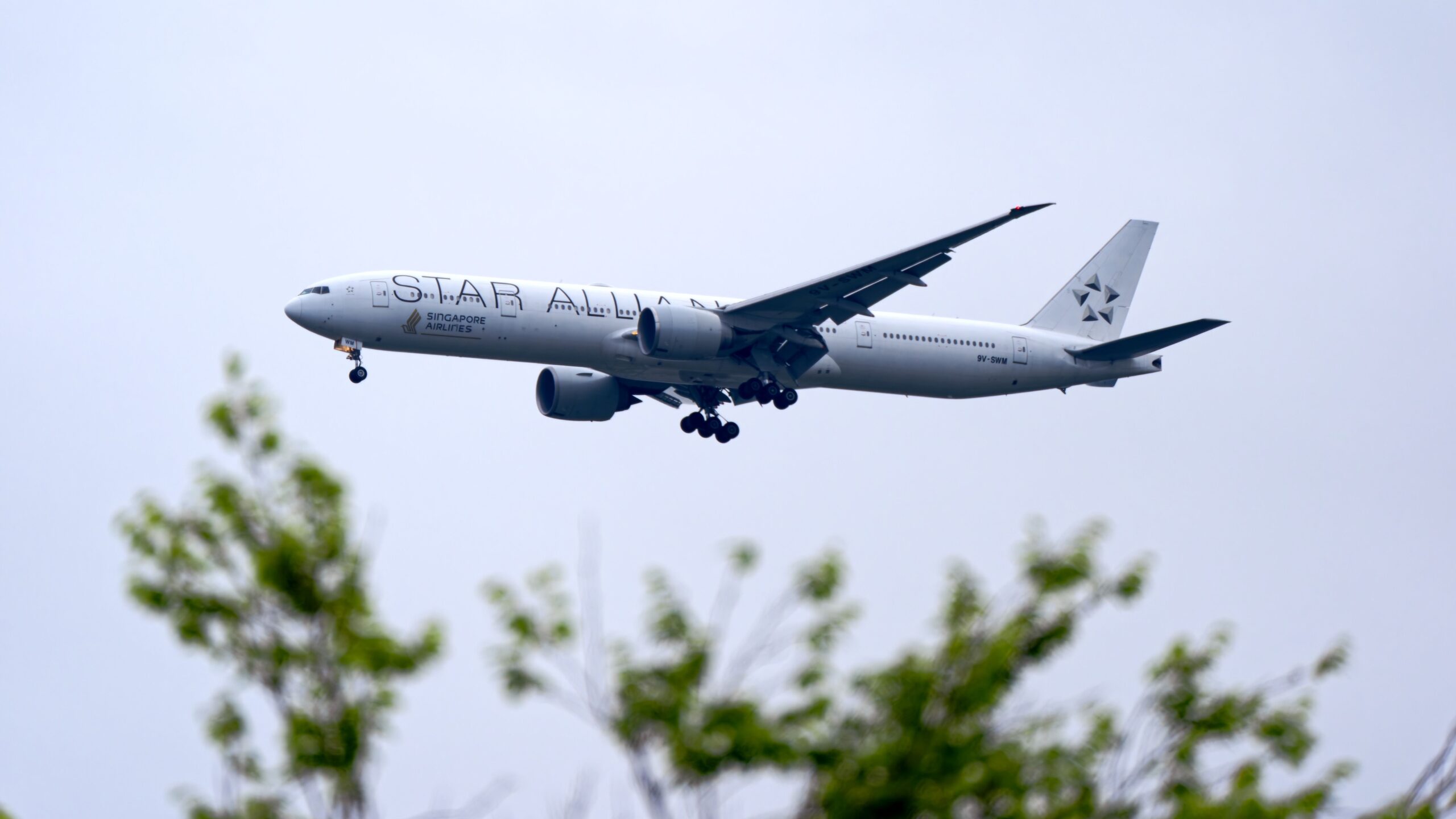World
Boeing 777-300ER: Impressive Fuel Efficiency Revealed

The Boeing 777-300ER, a flagship of modern aviation, showcases remarkable specifications that highlight its engineering prowess. Capable of taking off with a maximum fuel capacity of 45,220 gallons, this widebody jet can reach a total weight of 660,000 pounds when fully fueled for long-haul flights of up to 5,600 nautical miles. With such substantial figures, one might wonder about its fuel efficiency.
Surprisingly, the Boeing 777-300ER achieves an impressive fuel economy when assessed on a per-passenger basis. The aircraft can deliver approximately 70 miles per gallon (MPG), a statistic that speaks volumes about its performance in an industry often criticized for its environmental impact. This figure is obtained by dividing the total distance traveled by the amount of fuel consumed, providing a clearer picture of the jet’s efficiency relative to the number of passengers it can carry.
Understanding Fuel Efficiency in Aviation
The efficiency of the Boeing 777-300ER may be attributed to several engineering advancements that have been integrated into its design. The aircraft features advanced aerodynamics, which minimize drag and enhance overall performance. Additionally, the engines are designed with cutting-edge technology that optimizes fuel combustion, translating into better fuel economy.
In the context of the aviation industry, where sustainability is increasingly prioritized, the 70 MPG figure for the 777-300ER showcases a positive trend towards more fuel-efficient travel. Airlines are continuously seeking ways to reduce their carbon footprint, and aircraft like the 777-300ER play a vital role in these efforts. By maximizing passenger capacity while minimizing fuel consumption, airlines can operate more sustainably.
Another key factor influencing fuel efficiency is the aircraft’s operational environment. The Boeing 777-300ER is often used for long-haul flights, where its fuel efficiency can be maximized over extended distances. Short-haul flights typically do not allow the aircraft to reach optimal cruising altitudes, which can lead to higher fuel consumption per mile traveled.
The Future of Fuel Efficiency
As the aviation sector navigates the challenges of climate change and rising fuel costs, advancements in technology will continue to shape the future of air travel. The Boeing 777-300ER serves as a benchmark for what can be achieved with current technology, but the industry is also looking toward the development of alternative fuels and electric flight solutions.
The combination of efficiency, capacity, and performance of the Boeing 777-300ER provides a glimpse into a more sustainable future in aviation. As airlines strive to balance profitability with environmental responsibility, the significance of fuel-efficient aircraft will only grow.
In summary, the Boeing 777-300ER stands out not just for its size and capabilities, but also for its commendable fuel economy. With an efficiency rating of approximately 70 MPG per passenger, it exemplifies how modern engineering can contribute to more sustainable air travel while meeting the demands of global connectivity.
-

 Lifestyle4 months ago
Lifestyle4 months agoLibraries Challenge Rising E-Book Costs Amid Growing Demand
-

 Sports3 months ago
Sports3 months agoTyreek Hill Responds to Tua Tagovailoa’s Comments on Team Dynamics
-

 Sports3 months ago
Sports3 months agoLiverpool Secures Agreement to Sign Young Striker Will Wright
-

 Lifestyle3 months ago
Lifestyle3 months agoSave Your Split Tomatoes: Expert Tips for Gardeners
-

 Lifestyle3 months ago
Lifestyle3 months agoPrincess Beatrice’s Daughter Athena Joins Siblings at London Parade
-

 World3 months ago
World3 months agoWinter Storms Lash New South Wales with Snow, Flood Risks
-

 Science4 months ago
Science4 months agoTrump Administration Moves to Repeal Key Climate Regulation
-

 Science3 months ago
Science3 months agoSan Francisco Hosts Unique Contest to Identify “Performative Males”
-

 Business4 months ago
Business4 months agoSoFi Technologies Shares Slip 2% Following Insider Stock Sale
-

 Science4 months ago
Science4 months agoNew Tool Reveals Link Between Horse Coat Condition and Parasites
-

 Sports4 months ago
Sports4 months agoElon Musk Sculpture Travels From Utah to Yosemite National Park
-

 Science4 months ago
Science4 months agoNew Study Confirms Humans Transported Stonehenge Bluestones









